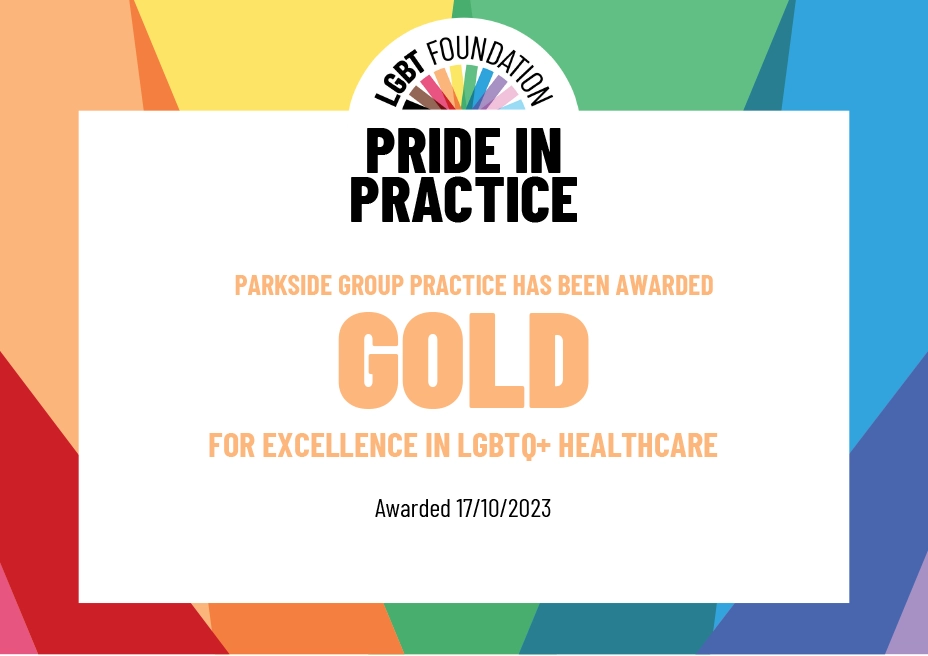We use cookies to help provide you with the best possible online experience.
By using this site, you agree that we may store and access cookies on your device. Cookie policy.
Cookie settings.
Functional Cookies
Functional Cookies are enabled by default at all times so that we can save your preferences for cookie settings and ensure site works and delivers best experience.
3rd Party Cookies
This website uses Google Analytics to collect anonymous information such as the number of visitors to the site, and the most popular pages.
Keeping this cookie enabled helps us to improve our website.
Non-NHS Services
Why GP's charge fees
Q: Surely the doctor is being paid anyway?
A:It is important to understand that many GPs are not employed by the NHS. They are self-employed and they have to cover their costs - staff, buildings, heating, lighting, printing etc - in the same way as any small business. The NHS covers these costs for NHS work, but for non-NHS work, the fees charged by GPs contribute towards their costs.
Q: What is covered by the NHS and what is not?
A: The Government’s contract with GPs covers medical services to NHS patients, including the provision of ongoing medical treatment. In recent years, however, more and more organisations have been involving doctors in a whole range of non-medical work. Sometimes the only reason that GPs are asked is because they are in a position of trust in the community, or because an insurance company or employer wants to ensure that information provided to them is true and accurate.
Q: Do GPs have to do non-NHS work for their patients?
A: With certain limited exceptions, for example a GP confirming that one of their patients is not fit for jury service, GPs do not have to carry out non-NHS work on behalf of their patients. Whilst GPs will always attempt to assist their patients with the completion of forms, for example for insurance purposes, they are not required to do such non-NHS work
Q: Who sets the fees for non-NHS work?
A: The BMA suggest fees that GPs may charge their patients for non-NHS work (ie work not covered under their contract with the NHS) in order to help GPs set their own professional fees.
Q: Can a fee be charged by a GP for the completion of cremation forms?
A: It is important to differentiate between death certificates (which must be completed free of charge) and cremation forms. Cremation forms, unlike death certificates, require doctors to make certain investigations which do not form part of their NHS duties. A deceased person cannot be cremated until the cause of death is definitely known and properly recorded. Before cremation can take place two certificates need to be signed, one by the GP and one by another doctor. Cremation form 4 must be, as stated, completed by the registered medical practitioner who attended the deceased during their last illness. Form 5 must be completed by a registered medical practitioner who is neither a partner nor a relative of the doctor who completed form. A fee can be charged for the completion of both forms 4 and 5 as this does not form part of a doctor's NHS duties. Doctors normally charge these fees to the funeral director, who, generally passes on the cost to the family. Doctors are also entitled to charge a mileage allowance, where appropriate.
Q: Why does it sometimes take my GP a long time to complete my form?
A: Time spent completing forms and preparing reports takes the GP away from the medical care of his or her patients. Most GPs have a very heavy workload and paperwork takes up an increasing amount of their time, so many GPs find they have to take some paperwork home at night and weekends.
Q: I only need the doctor's signature - what is the problem?
A: When a doctor signs a certificate or completes a report, it is a condition of remaining on the Medical Register that they only sign what they know to be true. In order to complete even the simplest of forms, therefore, the doctor might have to check the patient's entire medical record. Carelessness or an inaccurate report can have serious consequences for the doctor with the General Medical Council (the doctors' regulatory body) or even the Police.
Fees For Administration Services as from 1st March 2024
Access to Records under Data Protection Act |
|
| Print-outs of results, letters etc for personal use | Free |
| Copies of paper and/or computerised records - Request must be made by completing a sars form | Free |
| Brief summary printout | Free |
Certificates and Forms |
|
| Private sickness certificate | £30 |
| Private prescription | £30 |
|
Miscellaneous GP letters
|
£35 |
|
Miscellaneous Forms
|
From £40 |
Power of Attorney Forms
|
|
| Health including a 20 minute appointment | £110 |
| Finance including a 20 minute appointment | £110 |
| COP3 | This is not completed by a GP |
Patient employment related |
|
|
Ofsted childminders form
|
£75 |
|
Childminder form and medical
|
£100 |
| Taxi driver, PCV, LGV HGV, PHV or 204PCO medicals including a 20 minute appointment | £120 |
Travel Abroad |
|
|
Fitness to travel certificate/form
|
£30 |
|
Fitness to travel certificate/form including examination
|
£80 |
|
Holiday cancellation certificate/form
|
£40 |
| Private Prescription/Medical Certificate | £20 |
Vaccinations
|
Free |
Vaccinations (Not under NHS and cost covered by patient) |
|
| Yellow Fever | £70 |
|
Hepatitis B (Adult/Child) - Course of 3 vaccinations |
£120 |
We are unable to complete forms for passport, diving assessments or to certify ID


